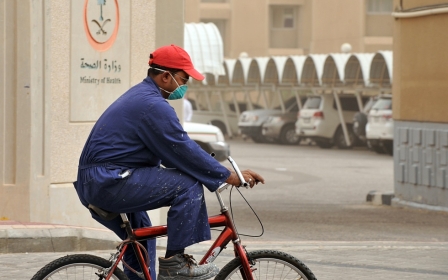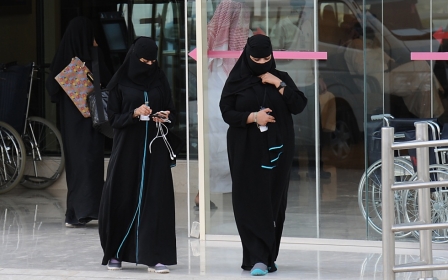Report of first MERS infection in Egypt

Egypt on Saturday reported its first case of the Middle East respiratory syndrome (MERS) coronavirus.
A 27-year old engineer had the virus after arriving at Cairo International Airport from Saudi Arabia, where he is working, the Health Ministry said in a statement.
According to the statement, the engineer came in to contact with an infected person in Saudi Arabia ahead of his arrival in Egypt. The ministry said that the man was taken to a northern Cairo fever hospital for treatment.
Tens of thousands of Egyptians travel to Saudi Arabia for work and performing the pilgrimage.
MERS infections have killed 92 people in Saudi Arabia, where the coronavirus was first detected in humans in 2012.
New MEE newsletter: Jerusalem Dispatch
Sign up to get the latest insights and analysis on Israel-Palestine, alongside Turkey Unpacked and other MEE newsletters
The Middle East Respiratory Syndrome (MERS) virus is considered a deadlier but less-transmissible cousin of the SARS virus which erupted in Asia in 2003 and infected 8,273 people, nine percent of whom died.
Experts are still struggling to understand MERS, for which there is no known vaccine.
In the wake of the increasing death toll, the World Health Organisation announced on Wednesday it had offered to send international experts to the Saudi Arabia to investigate "any evolving risk" resulting from the apparent change in transmission pattern.
Saudi Arabia's King Abdullah travelled to Jeddah on Thursday to reassure a worried public. The Red Sea city has seen a spate of cases among heath staff in recent weeks, sparking fears that the virus has mutated to make it more transmissible from person to person.
Health Minister Abdullah al-Rabiah was sacked on Monday and replaced with Labour Minister Adel Fakieh without any official explanation.
A recent study said the virus has been "extraordinarily common" in camels for at least 20 years, and may have been passed directly from the animals to humans.
It has spread to several countries, including the United Arab Emirates and Malaysia.
Middle East Eye delivers independent and unrivalled coverage and analysis of the Middle East, North Africa and beyond. To learn more about republishing this content and the associated fees, please fill out this form. More about MEE can be found here.



